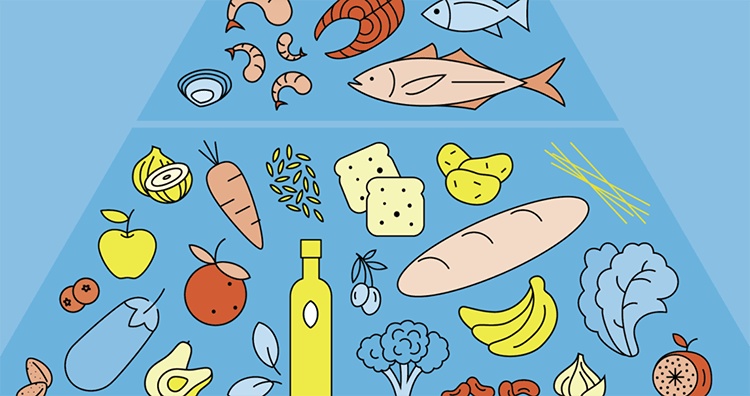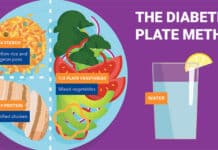If you're looking for a once-in-a-lifetime meal, you're likely to find it at El Bulli, a restaurant on the Spanish coast in Catalonia that's been called the best in the world by Restaurant Magazine.
Though the dishes are wildly inventive, the ingredients are definitely salt of the earth: fresh fish, olive oil, garden-warm fruits and vegetables. In other words, foods commonly eaten in sun-drenched Mediterranean countries.
In recent years, these same foods have been hailed as a way to prevent illness and promote overall good health, leading many experts to conclude that the Mediterranean diet can benefit people across the globe.
Gifts from the Greeks
Mediterranean food has been implemented since 50 years ago in Southern Italy. During this time, there is almost none who suffers from any sign of chronic ailments, such as cancer or heart disease.
This eating method may also prevent diabetes and Alzheimer's disease. It will also reduce any possibility of getting emphysema, hay fever, and asthma. Besides, a new study suggests that it may ward off some cancers.
What makes the Mediterranean food very beneficial isn't any one food, but the whole eating-low-on-the-food-chain package. The entire ethnic eating is unprocessed and natural.
It's a beautiful, healthier way of seeing at things that go beyond the common fast-paced, nuke-it style of eating.
The Specifics
A food pyramid is designed so the foods that make up most of your diet are at the base, and those that should be eaten in smaller quantities and less often are at the top.
In the Mediterranean plan, an abundance of vegetables, whole grains, beans, fruits, and nuts, olive oil and dairy foods are daily fare. Fish, chicken, eggs and sweets are recommended just a few times a week, and red meat is limited to no more than 12 to 16 ounces per month.
Here's a closer look at how this all stacks up:
- Whole grains and potatoes. Wonder Bread may have been a staple of 1950s America, but unrefined grains have always been the starch of choice in most of the rest of the world. Whole grains including breads, pasta, rice, couscous and polenta, have more complex taste and texture, and have been shown to cut your risk of heart disease and diabetes. While starchy, white potatoes have come under fire lately for their high carb content, in the Mediterranean they're often eaten in small portions or used sparingly in a larger dish.
- Fruits, vegetables, beans, nuts, seeds. There's simply no downside to fruits and vegetables — they're low in calories and fat and high in the fiber and nutrients that stop high blood pressure, heart disease, some types of cancer and age-related eye disease. Can't get past the boiled broccoli of your youth? The Mediterranean plan features options like grilled artichoke hearts and sun-dried tomatoes. Dry beans such as garbanzos (aka chickpeas — think hummus) and small amounts of nuts add quality protein.
- Extra virgin olive oil. Experts used to think that a low-fat diet equaled a healthy heart. But it's now clear that the kind of fat you eat is important, too. That's where extra virgin olive oil comes in. Walter Willet, M.D., a professor of epidemiology and nutrition and the chair of the Department of Nutrition at the Harvard School of Public Health, says that unlike saturated or trans fats, olive oil lowers bad cholesterol and encourages good cholesterol, making it a fat that actually helps your heart. Still, olive oil is loaded with calories. Six teaspoons a day will give you all the benefits without expanding your waistline.
- Cheese and yogurt. Cultured dairy foods like Greek yogurt and feta cheese are a big part of most Mediterranean cultures and may help intestinal health as well as provide calcium and protein. They're often eaten every day but in modest amounts.
- Fresh fish, poultry, eggs. It takes just 6 ounces of fish a week to knock points off your blood pressure and improve brain function in growing children. Seafood is even more important when it comes to your heart — cutting your risk of heart disease by as much as a third and halving your chances of sudden cardiac death. Chicken and eggs (no more than four a week, including those used in baking) play a supporting role.
- Sweets. Desserts like gelato, baklava and French pastries should be eaten sparingly. Fruit is the most common dessert in the Mediterranean.
- Red meat. Most of the arches in the Mediterranean date back thousands of years and definitely aren't golden! Because it's high in saturated fat and has been linked to some kinds of cancer, limit red meat (such as hamburgers) to a few times a month or avoid it completely.
- Red wine (optional). A glass of vino a day, sipped slowly with your meal, can help ward off heart attacks. Because the benefit is in the fruit, not the alcohol, grape juice packs the same punch.
Now, get ready to taste your own healthy Mediterranean-style foods!






